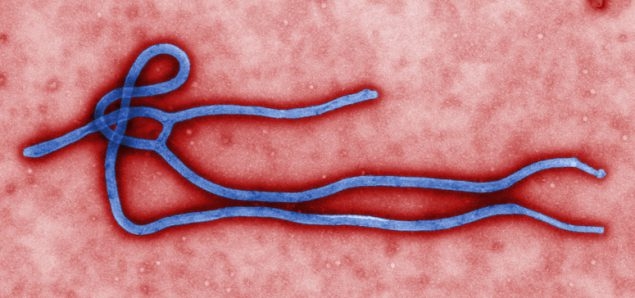Ebola outbreak: GHS cautions public as 3 die in Guinea
 Ebola outbreak in Guinea
Ebola outbreak in Guinea
Three persons have died of the Ebola Virus Disease (EVD), out of 7 reported cases in Guinea, West-Africa, the Ghana Health Service (GHS) has announced.
The GHS has therefore called on Ghanaians to take precautionary measures against the virus.
A statement issued by the GHS and signed by its Director General, Dr Patrick Kuma-Aboagye said: “This is to inform all stakeholders in the health sector of the confirmation of seven (7) cases of Ebola Virus Disease (EVD) in Guinea on 14 February 2021. Three of the cases have died from the disease.”
The GHS therefore called on all regions, districts and health facilities “to initiate preparedness and response plans for EVD.”
The statement continued that: “All regional and District Public Health Emergency Management Committees should include EVD on their agenda. Additionally, regions, districts, health facilities, port health units at all border posts particularly along the Western border and all landing beaches are to heighten surveillance for EVD using the standard case definition.”
It further called on regional and district public health facilities to remind all Ghanaians and residents in Ghana on the need to protect themselves by avoiding “contact with blood and fluids (such as urine, saliva, sweat, faeces, vomit, breast milk and semen) of people who show any symptoms of the above, practice hand hygiene: frequent hand washing with soap under running water or use an alcohol-based hand sanitizer, do not handle items that may have come in contact with an infected person’s blood or body fluids.
“Avoid contact with dead bodies, including participating in funeral or burial rituals of suspected or confirmed Ebola cases, avoid contact with animals (such as bats or monkeys) or with raw or uncooked meat, Do not handle bush meat (wild animals hunted for food), Seek medical care immediately (nearest health facility) if one develops fever (body temperature 38 °C or above) or other symptoms such as severe headache, fatigue (feeling very tired), muscle pain, vomiting, diarrhea, stomach pain, or unexpected bleeding or bruising.”
The GHS also reminded the general public that “under no circumstance should public or private transport be used for transporting suspected EVD cases.“
Rather, “they are to call for support from the District Director of Health Services of respective Districts, Municipalities or Metropolis in the transfer of such persons to a health facility.”
Source: classfmonline.com
Trending News

Public outcry grows over silence on October 2024 fatal East Legon accident case
13:54
Don't bring back Dr Bawumia - Political Scientist warns NPP delegates
00:28
DVLA suspends rollout of RFID licence plates over legislative delays
12:18
Minority raises alarm over mass dismissals, selective justice and contractor payments
01:33
NPP sets up review team to study Constitutional Review Committee proposals
12:05
Gov’t rolls out responsible cooperative mining programme in Ellembelle
00:17
Ghana Medical Trust Fund engages CHAG to strengthen specialised healthcare delivery
11:38
Minority warns President Mahama over galamsey, GoldBod and environmental collapse
00:07
US regulator approves pill form of Wegovy weight-loss drug
11:44
PAJAG lauds gov't, rCOMSDEP for issuing first responsible cooperative mining permit
01:46



